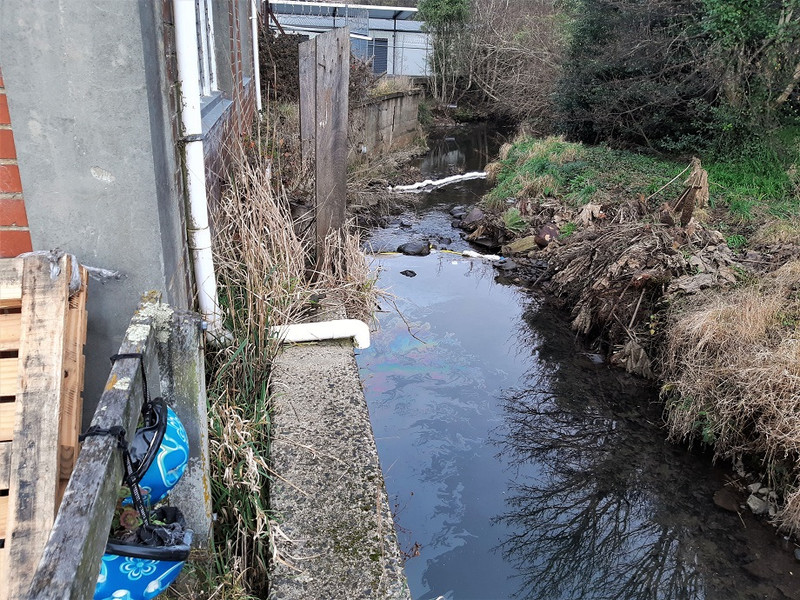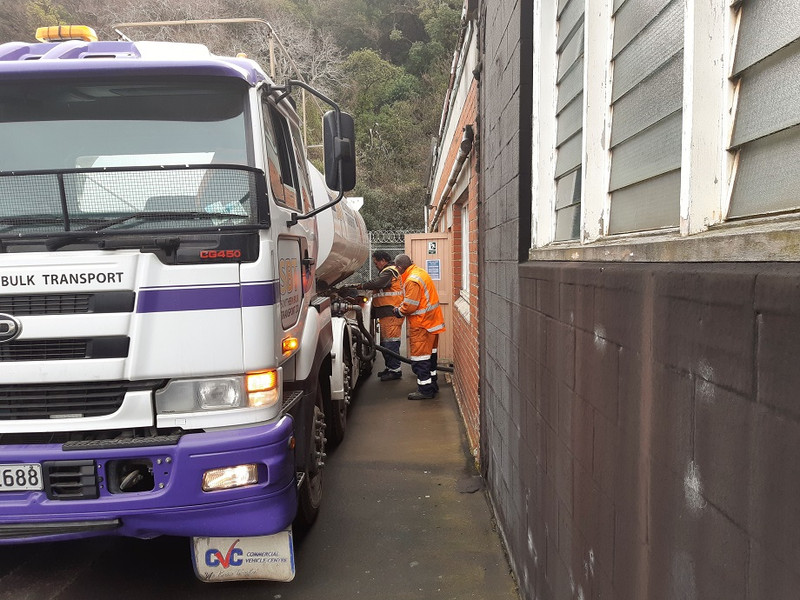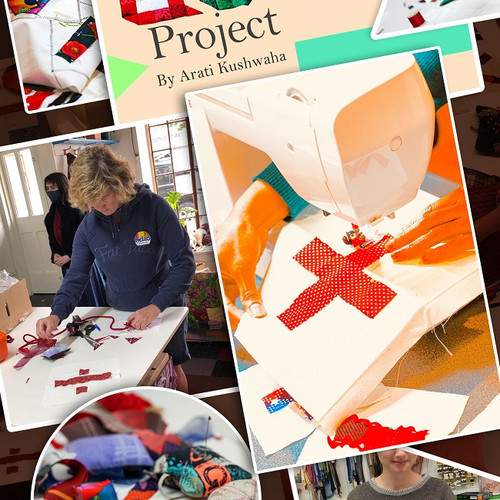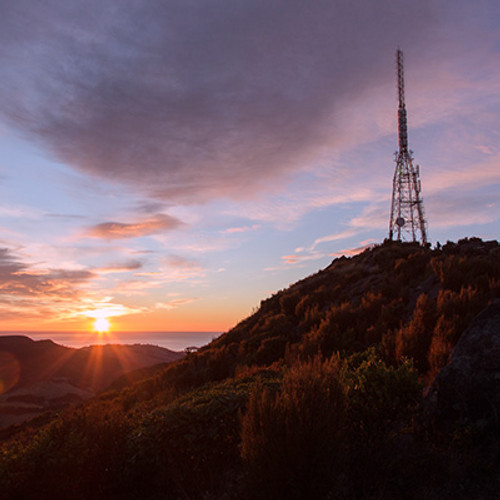Diesel spill 'extremely upsetting'
A diesel leak into Lindsay Creek suspected to be coming from a community-owned workspace has been distressing for community members and the Valley Project executive board as they work to deal with and rectify the situation.
The diesel seeping into the creek is assumed to be coming from recently-discovered underground tanks beneath the Valley Community Workspace at 11 Allen Street.
The Valley Project, which owns the community workspace building, was first notified about the leak on 9 July. The chairperson, Ian Telfer, reported the leak to the Otago Regional Council pollution hotline and council staff visited the site later that day.
Regional council staff installed a diesel-absorbing boom in the creek below the building, which seems to have successfully soaked up much of the diesel, stopping it from spreading further downstream.
Spill amount small
Council staff say it is likely only a small amount of diesel – perhaps several cups’ worth – has entered the stream. They advised that diesel spills often look worse than what they actually are as diesel is extremely thin and floats on the surface of the water, so it spreads out over a wide area.
“This leak is extremely upsetting,” Ian says. "We do not want to be responsible for damaging the stream which runs through our valley. The community has several active environmental groups and we run an annual CreekFest event, so this is exactly what we don’t want.”
“We are now doing everything we can to make the leak stop.”
Underground tanks only discovered recently
The underground tanks were first discovered at the end of last year and found to contain a then-unknown liquid. The Valley Project board began the process of seeking information and advice to remove the liquid and seal the tanks. The liquid was tested and found to be old diesel.
The Project has contractors on standby to remove the diesel and fill the tanks with concrete, but has to wait for approval from Worksafe New Zealand. The board has been working since January to get this approval.
With the agreement of the regional council, it was decided to fast-track the diesel removal. Two days after the leak was discovered the diesel was pumped from the tanks and taken to Christchurch for disposal.
The leak has now slowed, but despite emptying the underground tanks, diesel is still leaking into the creek. This is likely due to the diesel that has already leaked into the soil between the tanks and the creek. It is not known how long the leak will keep going.
Restoration project planned
Ian says regional council staff have told him the damage to stream life in the creek from the spill should be minimal. However, the Valley Project board has decided that once the leak has stopped it wants to undertake a restoration project at the site.
“We would like to consult with the wider community, including local Rūnaka and carry out a clean-up and rehabilitation project to restore the mana and wairua of the creek, and try to make up for the damage.”
Legacy issues from old industrial building
The Valley Community Workspace is a shared space of workshops and offices used by a range of community businesses and projects.
The building was bought by the Valley Project five years ago, but as an old industrial building has a number of legacy issues. It operated as a dry cleaner from the 50s to the 70s and was a motor mechanics in the 80s.
It is registered with the regional council as a potentially contaminated site, but the Valley Project was not aware of the underground tanks until last December.
The project is still waiting for Worksafe New Zealand approval to fill the tanks with concrete, despite both project board members and the regional council contacting Worksafe to try and speed things up.
“Like many community organisations, we have limited resources to respond to such emergencies,” Ian says.
“We have been going as fast as possible and doing everything by the book. So it has been really gutting to have this happen.”






